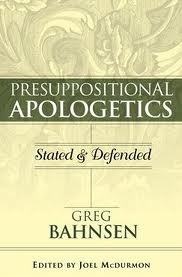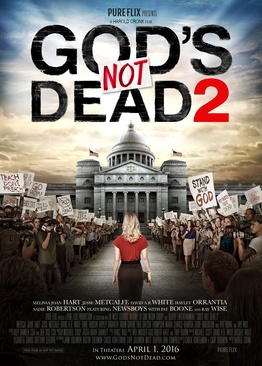In all seriousness though, I get that it's a little unsettling to think of the idea of someone asking you about your faith and you having to give a reason for it right there on the spot.
But in equal seriousness it's truly something we're all called to do, isn't it?
I don't pretend to be immune to this phenomenon; and I confess that I even went through it myself a couple years ago (I do think God has brought me past it at this point - but I'll leave that to the reader). This situation has been seen a lot recently within the church due to the advent of the Young, Restless, and Reformed movement. But I think a similar thing is going on in our culture with regard to politics. Perhaps it would be called the Young, Restless, and Libertarian.
I'm not here going on the offensive against the libertarian system. I have many Christian friends with a libertarian viewpoint in regard to politics, and they are not the aim of this post. My aim has to do with those who claim libertarianism while still being in that cage stage where they can hurt themselves and others. A chief case-in-point is an article I came across the other day entitled, 6 Ways Parents Teach Their Children Socialist Values (shared on Facebook a mere 3.5 thousand times). Now I agree that parents often do inadvertently teach their kids socialist values. But the author of this article is not giving a Biblical worldview assessment of that situation nor in the answers he proposes. I don't know if he's a Christian or not (Reformed or otherwise), but regardless I do believe his article needs to be addressed.
"Pretend you are Muslim." Jay Sekulow has rallied the outcry against this assignment and collected over a hundred thousand signatures petitioning the Department of Education with the following: Public schools are a place for religious freedom, not indoctrination. Stop Islamic indoctrination in our schools and protect the religious liberty of students. Well, I could see how this assignment would be considered Islamic indoctrination. But what I'm wondering is, how is it any worse than the secular humanist indoctrination that takes place for virtually every other assignment in virtually every other class? Today's Google Doodle was in honor of Nelson Mandela. And as usual with Google, it was done incredibly well. But it's when things are so appealing to our visual enjoyment and emotions that we might do well to be even more attune to how to interpret it in light of God's Word. Now I need to be clear up front: this post is not intended to attack Nelson Mandela in the least.(1) It is, however, intended to provide an analysis of the message Google presents in honor of Mandela (at least in part from his own words) and how that message is at polar opposites with the message God provides in His Word. So if you examine with me the beautiful doodles of Google compared to God's Word, I hope you'll discover with me that as at many other times, there is an important clash of worldviews - that is - an important clash of understanding of truth, that is at stake here.  So what is so opposite the Christian message in today's doodle? Let's take a look. After clicking on the arrow to the right of Nelson Mandela we're taken (in a Pixar-esque fashion) to the next doodle, which I believe is taken straight from Mandela's autobiography.
Is God's Not Dead a movie worth seeing?
No...not really. The acting wasn't that great. I mean, there were one or two who could make it as Hallmark movie actors; but other than that it was pretty terrible. The characters were mostly absurd caricatures. From the "feel-good" aspect, there were various sub-stories within the film that they tried to bring together for a big "Awe..." moment. But the characters were so flat that it doesn't really make you feel anything, other than the wonderment of why you watched this film in the first place. The film was way over dramatic at points (many points), appealed drastically more to feelings than to reason (pretty annoying given that the thrust of the movie was supposed to be rational debate in a philosophy class), and very weak even in its evangelistic moments. For a much fuller analysis of the debate, I recommend Albert Mohler's article here. My Snarky RecapResolution: Is Creation a Viable Model of Origins in Today's Modern Scientific Era?
Ken Ham: Yes. When you take what the Bible says as your starting point, what you see in nature lines up with the creation model. Bill Nye: No. Because if you accept creation as a viable model, then America (and American voters and American taxpayers) will fall behind the world in the advancement of technology. [despite the evidence Ken offered to the contrary showing that there are modern creationist scientists along with their non-creationist counterparts who have both been at the forefront of advancing technology] Q&A: Ken Ham: As stated before, when you take what the Bible says as your starting point it lines up completely with what you see in observational science. Bill Nye: I don't know...that's a mystery to me. But I get a lot of [unexplained] joy in trying to discover it...and American taxpayers and voters should too. While "the Church" as such (meaning as a distinct entity from the state) should never have the power of the sword, that doesn't mean (nor should it) that it is altogether banned from the political sphere.
To the contrary, the Christians who make up what is known as the church (and consequently who also are many of those governed by the state) have very good reasons to be involved in their local, state, and national politics, to the degree that they're able.(1) That is to say, Christians have the responsibility and privilege (again, to the degree that they're able) to do whatever they can to influence (through humble, rational persuasion, not through coercion) the public governmental policies (politics). Otherwise are Christians somehow not called:
And yet there are so many who think the Christian is somehow obligated to do all the above except where it involves politics. Never mind the fact that we're even explicitly commanded to bring our prayer life to bear on the government of society (1 Tim. 2:1-3). Is the rest of the New Testament really so unclear as to what it means to be the salt and light of the earth, to expose the works of darkness, to disciple the nations, to submit even our thought life to Christ - indeed to do all things to the glory of God - except when it pertains to our involvement in how our societies are to be governed and with what standard our governors should apply (and by which standard they themselves should be judged) when carrying out the appropriate duties in the domain of the civil magistrate? Nonsense! On 2/28/13 Steve McSwain was published in the Huffington Post's Religion section with the following article:
6 Things Christians Should Just Stop Saying The list is pretty straight forward, although he does some lengthy elaborations on some of the points. But in summary, here are the six things which a fellow(?)-Christian(1) says all other Christians really need to stop saying:
While I wanted to respond back then, I didn't really have a forum to do so; and I also didn't really have the time until just recently (preparing for the birth of our daughter, learning how to be a Dad to a newborn, going through an unexpected job change, etc.). Nonetheless, now that I do have time, I'd like to do something of my part in protecting (or encouraging) the flock, and give (by God's grace in me) what I believe is a Biblical response.  Stated and Defended Indeed This is truly an exceptional work on presuppositional apologetics. Complementary to his book, Van Til's Apologetic: Readings and Analysis, which is a comprehensive address of what presuppositional apologetics is, in this work Bahnsen offers an outright defense of presuppositional apologetics and a critique of those who have mistakenly been labeled as presuppositionalists. Part one addresses the method and defense of presuppositional apologetics as the only Biblically and theologically consistent approach to defending the faith. In chapter one, Bahnsen sets forth the presuppositional method and forcefully shows how presuppositionalism is (and must be) part of Christian theology. He demonstrates in chapter two the foundation for Christian presuppositionalism, namely revelational epistemology, and gives ample Scripture references to this effect. It must be said that if one is familiar with Bahnsen's writings or lectures, up to this point most of the material is nothing more than a heavy review, which seems very repetitive at times. However, in chapter three Bahnsen really pushes revelational epistemology to another level, effectively demonstrating the impossibility of divorcing one's metaphysic from one's epistemology. He shows that one must already know something about the state of affairs (metaphysics) before he establishes a criterion of how he can proclaim his beliefs justifiable (epistemology). One must know in order to know. This argument transitions perfectly into the presuppositional view that the unbeliever does know God (even while suppressing that knowledge); and his worldview is tainted by that metaphysic even though it is professed otherwise in his epistemology. |
Categories
All
|





